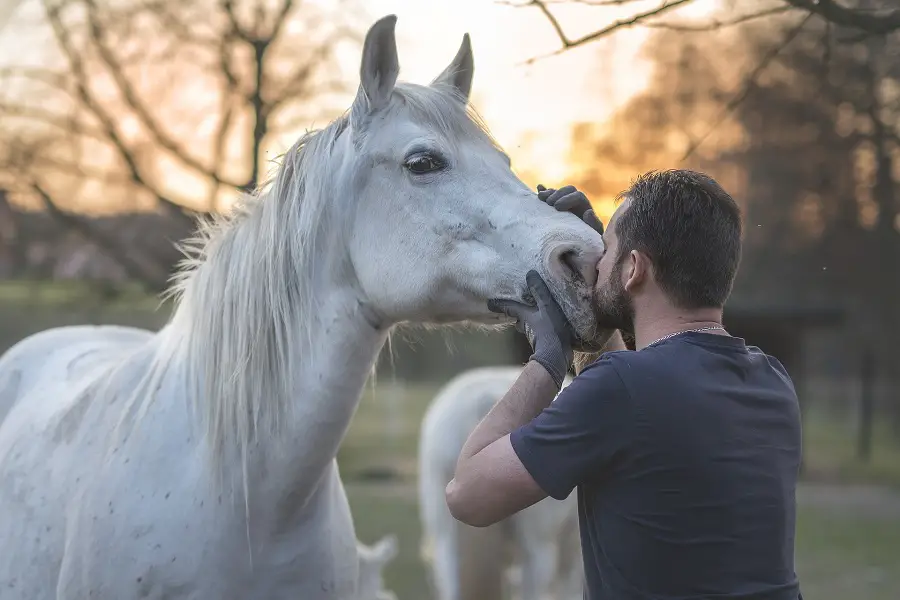Equine therapy, also known as horse therapy, is an increasingly popular form of psychotherapy that uses horses as the primary therapeutic tool.
Horse therapy is a powerful and often effective form of treatment for people who are dealing with mental health issues, including depression and anxiety.
Let’s take a look at how equine therapy works and why it can be so effective.
What Is Equine Therapy?
Equine Therapy, also known as equine-assisted therapy (EAT), is an experiential form of psychotherapy that uses horses to facilitate healing and promote personal growth.
Developed in the 1970s by psychotherapist Gary Heavin and horse trainer John Kohnke, EAT combines traditional psychotherapy with activities involving horses.
It is based on the idea that interactions between humans and animals have a powerful effect on emotions, behavior, cognitive functioning, and physical health.
How Does Equine Therapy Work?
Equine therapy is based on the belief that humans can benefit from interacting with horses in a therapeutic setting.
The goal of this type of therapy is to provide patients with an opportunity to build trust, develop communication skills, increase self-confidence and self-awareness, and improve problem-solving skills.
It has been used to treat many different types of psychological conditions, such as depression, anxiety, trauma, PTSD, eating disorders, ADHD/ADD, addiction issues, and more.
Equine-assisted activities (EAA) are designed to help individuals gain insight into their thoughts and feelings by engaging in activities with horses.
These activities may include grooming or leading the horse around an enclosure or riding them in an arena. People of all ages can participate in EAA since they do not require any prior knowledge or experience with horses.
In addition to providing therapeutic benefits for people dealing with mental health issues, EAA can also help promote physical fitness among participants.
Why Is Equine Therapy Effective?
The effectiveness of equine therapy lies in its ability to create a positive environment where individuals can feel safe and supported while also having fun.
Horses are naturally intuitive animals that respond positively when they sense that someone is feeling anxious or stressed out; this makes them ideal companions for those seeking emotional support during difficult times.
Additionally, the physical activity involved in EAA can help individuals develop greater strength and flexibility while also learning valuable life skills such as patience and perseverance.
As a result of these benefits, many people find that equine therapy helps them become more connected both to themselves and those around them in a meaningful way.
The Benefits of Equine Therapy
Equine therapy provides a number of psychological, social, and physical benefits for those who participate in it.
Firstly, it helps increase self-awareness by allowing participants to observe their behavior patterns while interacting with the horse.
Secondly, it develops trust between the participant and another living being which can lead to increased confidence in engaging with other people.
Thirdly, equine therapy encourages communication skills such as body language which can help individuals more effectively communicate their feelings to others.
Finally, it helps develop problem-solving skills as participants must work collaboratively with the horse to complete tasks.
Equine therapy is an incredibly effective method for those seeking relief from mental health issues such as depression, anxiety, PTSD, and even substance abuse.
Horses have been shown to reduce stress levels and help people gain clarity about their own emotions by providing nonjudgmental feedback through their reactions to our behavior.
If you are considering trying equine therapy yourself or recommending it to someone else, discuss your options with a licensed therapist who specializes in this type of treatment before taking any action.
With the right guidance and support, you may find that equine therapy is just what you need to start your journey toward emotional healing!
Leave Feedback: Was this article helpful?

